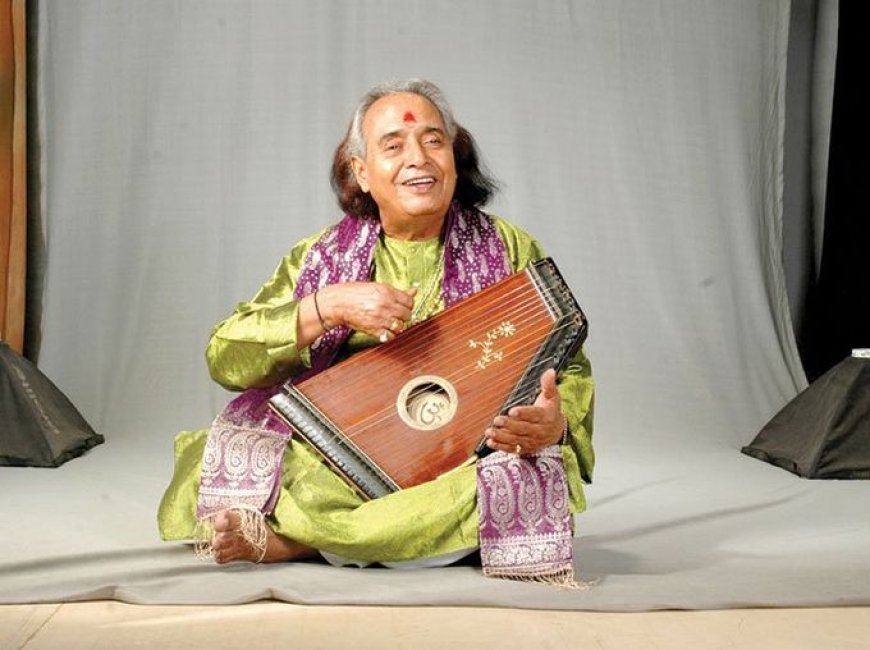Padma Vibhushan Pandit Chhannulal Mishra Dies at 89 After Prolonged Illness
Padma Vibhushan Pandit Chhannulal Mishra passes away at 89 after prolonged illness; India mourns the loss of a Hindustani classical music legend.

Introduction
India lost one of its most celebrated classical music legends, Pandit Chhannulal Mishra, who passed away at the age of 89 after a prolonged illness. Known for his mastery in Hindustani classical music and especially in Thumri, Khayal, Dadra, and Chaiti, Pandit Mishra was a cultural icon whose voice echoed across generations. His passing marks the end of an era in Indian classical music, leaving behind a void that will be difficult to fill.
History and Legacy
Pandit Chhannulal Mishra was born in 1936 in Varanasi, Uttar Pradesh, a city deeply rooted in musical traditions. Trained under the Banaras Gharana, he became widely respected for his soulful renditions and his ability to connect with audiences beyond classical music lovers. His recognition extended globally, and in 2010, he was honored with the Padma Vibhushan, India’s second-highest civilian award, for his contribution to arts and culture.
Cause of Death – Why Did He Pass Away?
Reports suggest that Pandit Mishra had been battling age-related ailments for quite some time. His prolonged illness weakened him, and despite medical care, he succumbed at the age of 89. While no sudden external reason was reported, his advanced age and declining health were the primary causes behind his demise.
A Short Story of His Journey
From humble beginnings in Varanasi to performing on international platforms, Pandit Mishra’s journey was inspiring. He popularized traditional forms like Thumri and Khayal while blending them with devotional renditions, making classical music more accessible to common listeners. His performances were not just art—they were spiritual experiences, deeply rooted in India’s cultural ethos.
Key Points
-
Pandit Chhannulal Mishra passed away at 89 after a prolonged illness.
-
Born in 1936 in Varanasi, he was a master of Thumri, Khayal, Dadra, and Chaiti.
-
Recipient of Padma Vibhushan (2010) for his contribution to Hindustani classical music.
-
Known for devotional and semi-classical renditions that touched millions.
-
A cultural ambassador of the Banaras Gharana.
Drawbacks and Impact of the Loss
The biggest drawback of his passing is the irreparable cultural void it leaves in the classical music world. His depth of knowledge, style, and unique ability to bridge the gap between generations cannot be easily replaced. For students and music lovers, his death means the loss of a living treasure of Indian heritage.
Latest Buzz and Updates
Following his demise, tributes have poured in from across India, including from top political leaders, musicians, and cultural organizations. Social media has been flooded with his memorable performances and heartfelt condolences. Music academies are also planning special programs to honor his memory and contributions.
Importance and Significance
Pandit Chhannulal Mishra was not just a musician; he was a symbol of India’s cultural heritage. His songs carried values of devotion, spirituality, and tradition. He kept the Banaras musical tradition alive while inspiring modern-day musicians to carry it forward. His significance lies in his ability to connect classical traditions with ordinary listeners.
Advantages and Disadvantages (Positive and Negative Aspects)
Positives:
-
Preserved India’s musical traditions.
-
Inspired generations of musicians worldwide.
-
Took Hindustani classical music to global platforms.
Negatives:
-
With his passing, a significant knowledge source is lost.
-
Lack of equal successors to continue his exact style.
-
Decline in mainstream recognition of classical music compared to popular genres.
Final Thoughts and Conclusion
The passing of Padma Vibhushan Pandit Chhannulal Mishra is not just the loss of an individual but the departure of an institution in itself. His music, however, will remain immortal, continuing to inspire and guide classical musicians for generations to come. As India mourns his demise, his legacy as a torchbearer of Hindustani classical traditions will live on forever.
His life teaches us that true art goes beyond fame—it touches hearts and becomes eternal.

 Ellofacts
Ellofacts 





